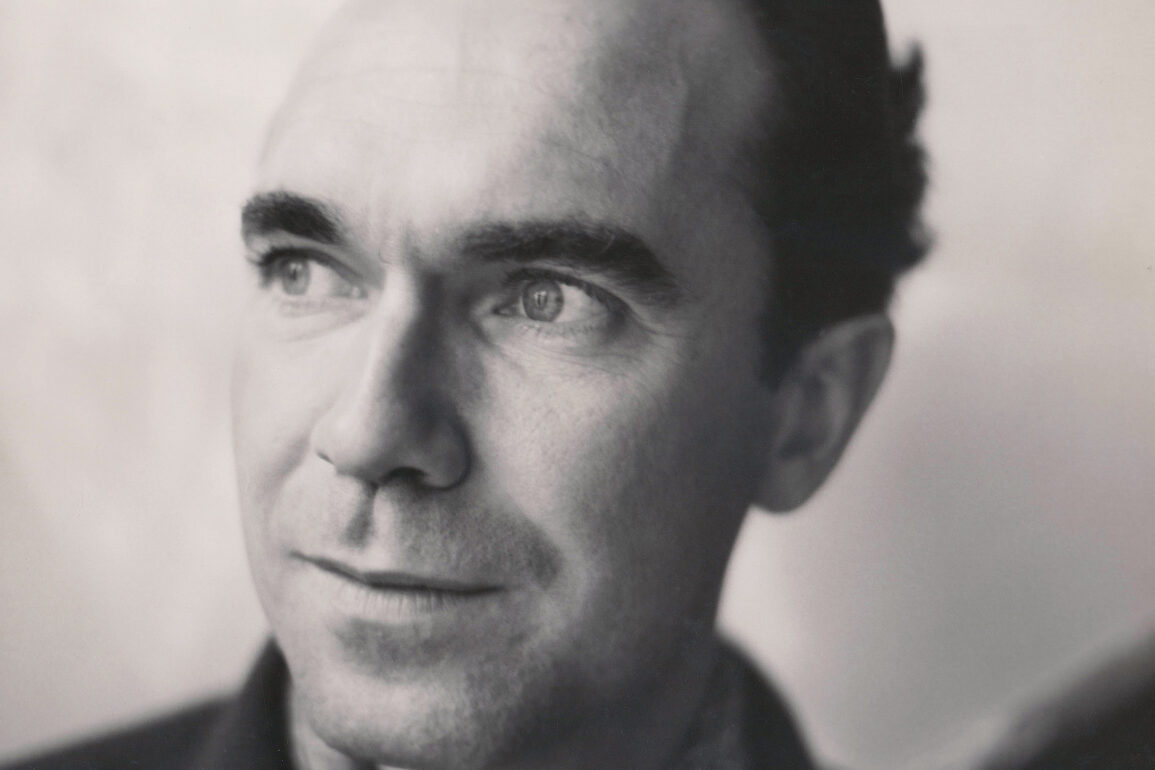As the only private art institution that independently bestows grants, Fundacion Sansó strives to help individuals and groups at the starting level, rather than targeting high-profile art projects.
In Philippine art, it seems almost impossible to break through the field, launch a solo show, or even to finish an art education. Fundacion Sansó wants to change this by connecting with and assisting artists and other creatives in the industry through their advocacies and programs.
Giving Young Artists a Head Start
Juvenal Sansó knew how it was to be a student struggling with finances. In his 1976 book Sansó, author Alfredo Roces writes about the artist’s early years as a student in Europe: “As long as he officially qualified as a student, Sansó depended on dollar allocations from home for his sustenance. It was far from luxurious living. Financial problems naturally added to his rather somber existence and this black period was characterized by paintings of Goyaesque humanity.”
Once Sansó had become a successful artist, he discreetly donated funds to his alma mater, the University of the Philippines College of Fine Arts (UPCFA), for select art students. As a continuation of Sansó’s wish to help other young visual arts students, Fundacion Sansó established a stipend fund in 2020.
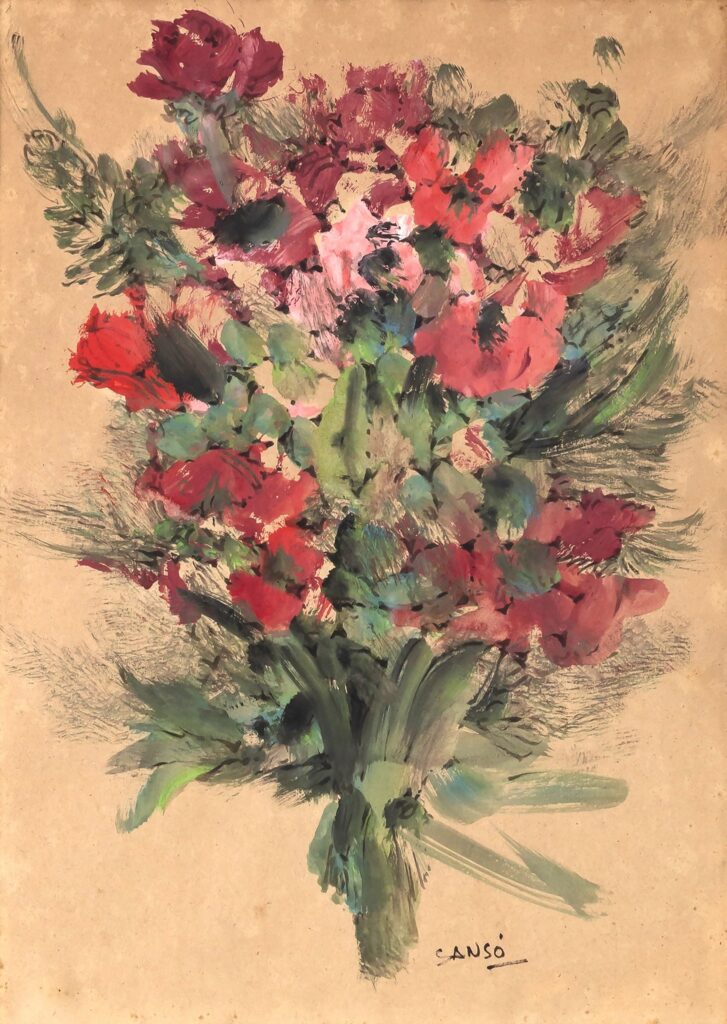
PHOTO: c/o Fundacion Sansó
“To be a visual artist in the Philippines is to be at a disadvantage,” admits Ricky Francisco, director of Fundacion Sansó. “The cost of materials is already expensive, and the competition to become a sustainable visual artist is high. But to get there, you have to invest in developing your skills, or networking within the art scene, including with the curators, schools, academics, and the like who are an integral part of the art community.”
A stipend fund would help the student cover their art materials, transportation, and other daily expenses, thus giving them more time to focus on their art and studies, and minimizing the high attrition rate that is usually the case among students.
The initial beneficiaries of the Sanso Stipend Fund were students from the of College of Architecture and Fine Arts at the Bulacan State University (BuLSU). Francisco explains that they were chosen because “…so many artists came from Bulacan State University, and they have a tradition of being very skilled painters despite not having a dedicated Fine Arts program.”
The first batch of recipients of the Stipend Fund participated in the “Premio Sansó” competition in 2020, and “Pamana sa Panahon na Nagbago Ang Mundo.” The “Premio Sansó” finalists were awarded a year-long mentorship, and a culminating group exhibit at Galerie Stephanie in 2021.
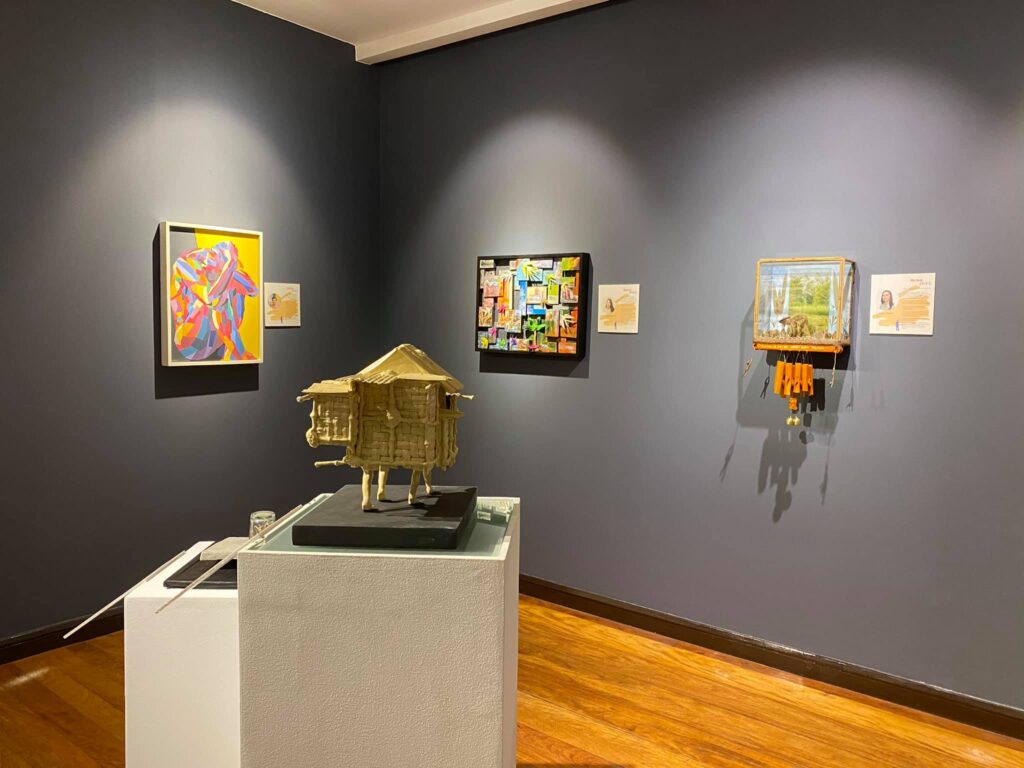
PHOTO: c/o Fundacion Sansó
A Need for New Curators
Aside from benefiting visual arts students, Fundacion Sansó’s programs also target various members of the artistic community, including curators, and even art critics and writers. “We try to address the needs of the different players within the art community; one of the first things we did was to give a Curatorial Grant,” Francisco explains, citing that curators are often mistaken for being “people who just hang art,” and adds that creating grants puts the focus on the importance of curatorial work. “There is a need to balance the strong commercial aspect of art versus the fundamental recognition of what is good art, and curators play a vital role here.”
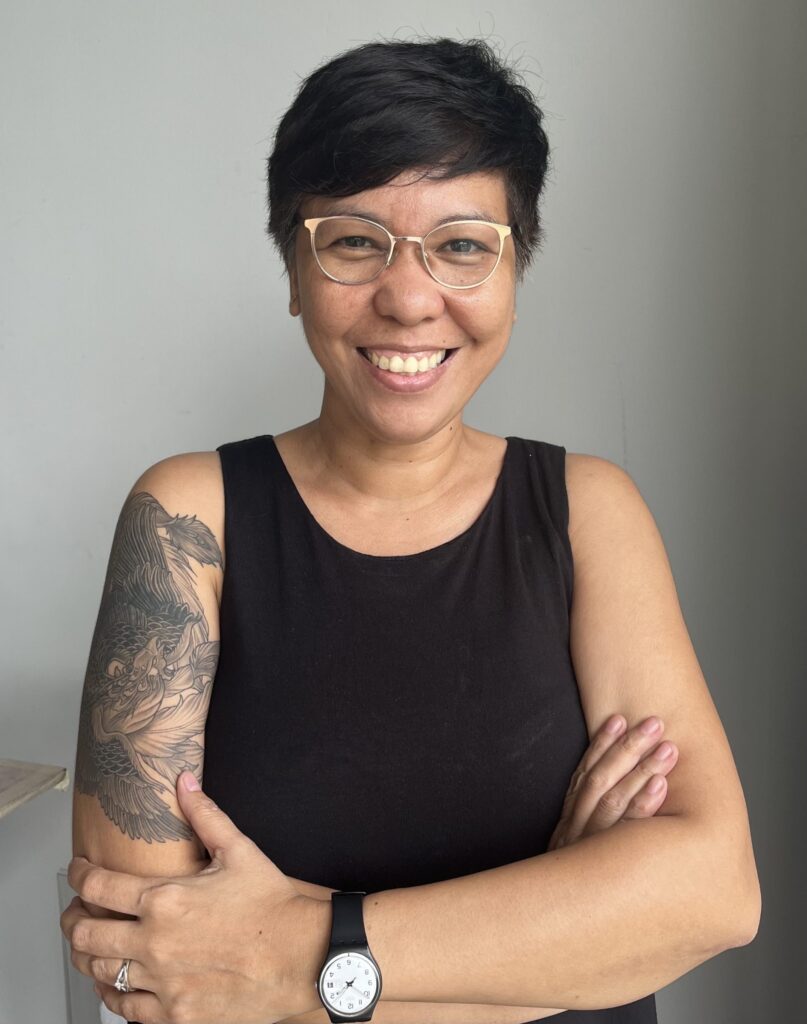
PHOTOS: c/o Fundacion Sansó
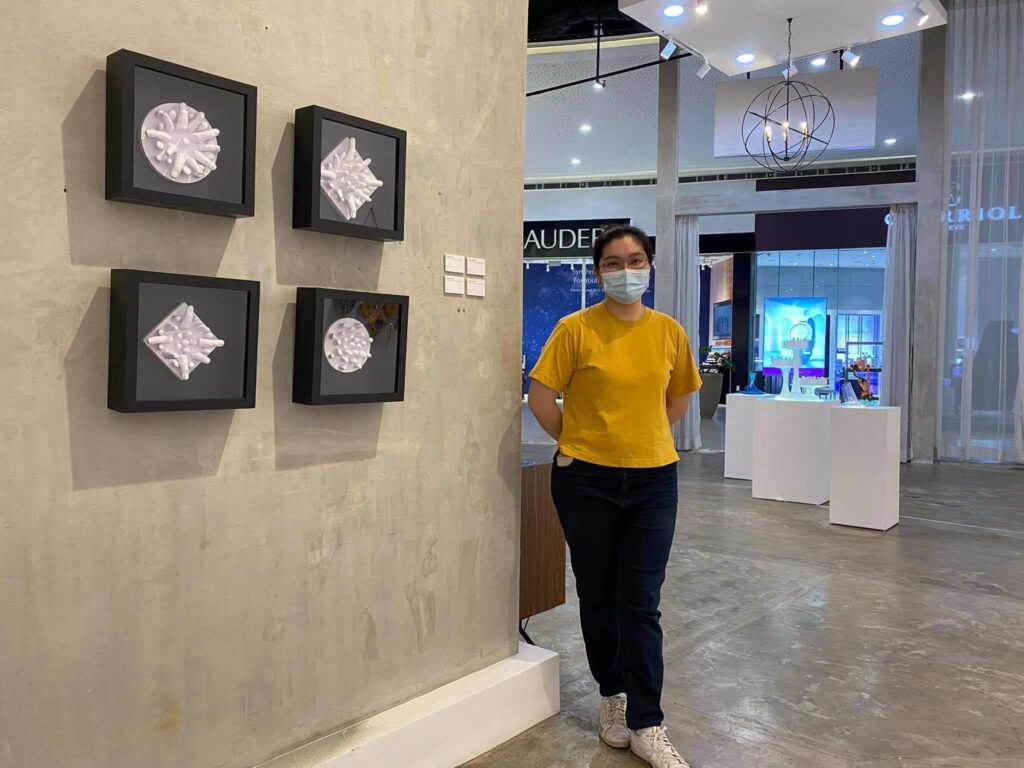
PHOTOS: c/o Fundacion Sansó
Using the Fundacion Sansó collection as a starting point, the grantees under the Curatorial Mentorship Program could create the framework to interpret the art into exhibitions. The first grantee was Dr. Dayang Yraola, who curated the “Mutation Series” in 2020 using Sansó’s experimental cliché verre slides, transformed into morphing videos by artist Annie Pacaña, and paired with immersive music by Children of Cathode Ray. This was followed by young artist Julieanne Ng, who wanted to do curatorial work in a commercial setting, and so she curated “Of Breadcrumbs, Glass Slippers, and Happily Ever After” at the Art Lounge Podium in 2021.
Building bridges for artists outside Metro Manila
Another dissonance in the art community is the difficulty of artists who live outside of Metro Manila to get ample exposure for their work. Fundacion Sansó tries to address this by means of a Travel Grant, which takes the financial burden off the artists who need to be exhibited in the city.
“Our first Travel Grant came from a generous artist who doesn’t want to be identified,” Francisco relates. “She believes that in order to become a really good artist, you have to be exposed to different types of cultural settings and types of knowledge, and the best way to do that is by going out of the place you are from.”
One of the recipients of this Travel Grant was the Cebuano artist Ronyel Compra, who flew to Metro Manila in 2019 to exhibit “Lutâ: Imprint of Lola Masyang’s House in the Forest for the Trees.” Traveling to Metro Manila paid off, as Compra was shortlisted for the Ateneo Art Awards-Fernando Zobel Prizes for Visual Art that same year.
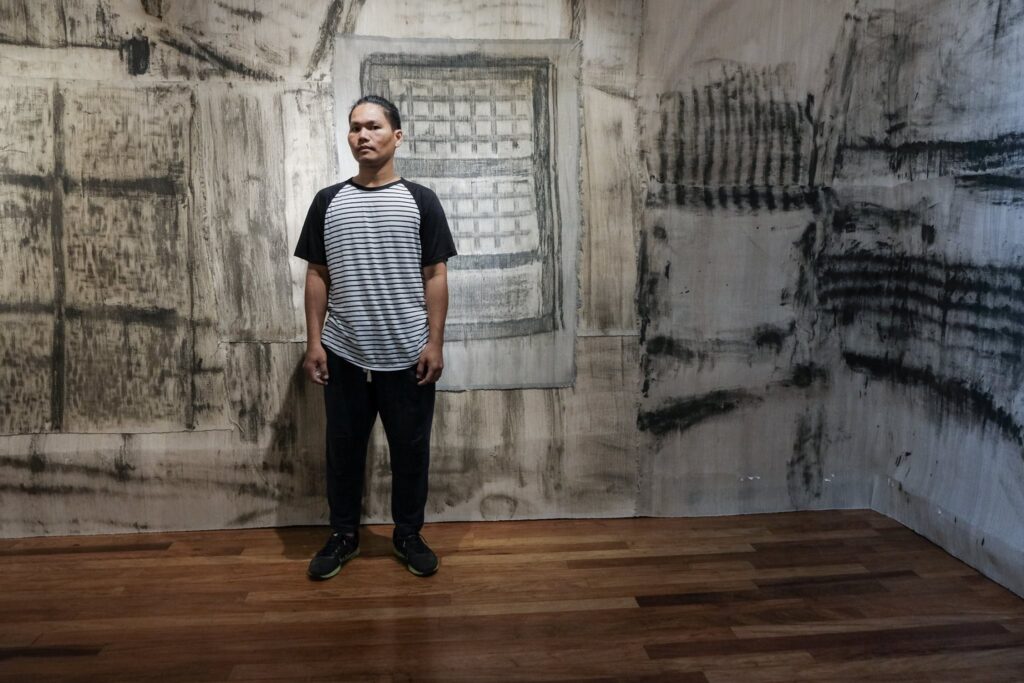


According to Francisco, the programs and scholarships will not end here. Aside from the recent Leo Abaya Masters’ Thesis Research and Development Grant recently awarded to UPCFA last February 2023, Fundacion Sansó is currently exploring a Stipend Fund for UP similar to that of the Bulacan State University, as well as a donation of a tabletop printing press to strengthen the college’s print program. Another project in the works is the establishment of a Stipend Fund for deserving students of the Institute of Architecture and Fine Arts (IARFA) at the Far Eastern University of Manila.
“We are very sensitive to the context that we offer our help,” Francisco adds, noting that the altruistic work will continue. “And so, whatever they need, we will always try to meet them halfway.”
For more information about Fundacion Sansó’s programs, email fundacionsanso@gmail.com. For news and updates, please follow @fundacion_sanso on Instagram, and FUNDACIONSANS0 on Facebook

